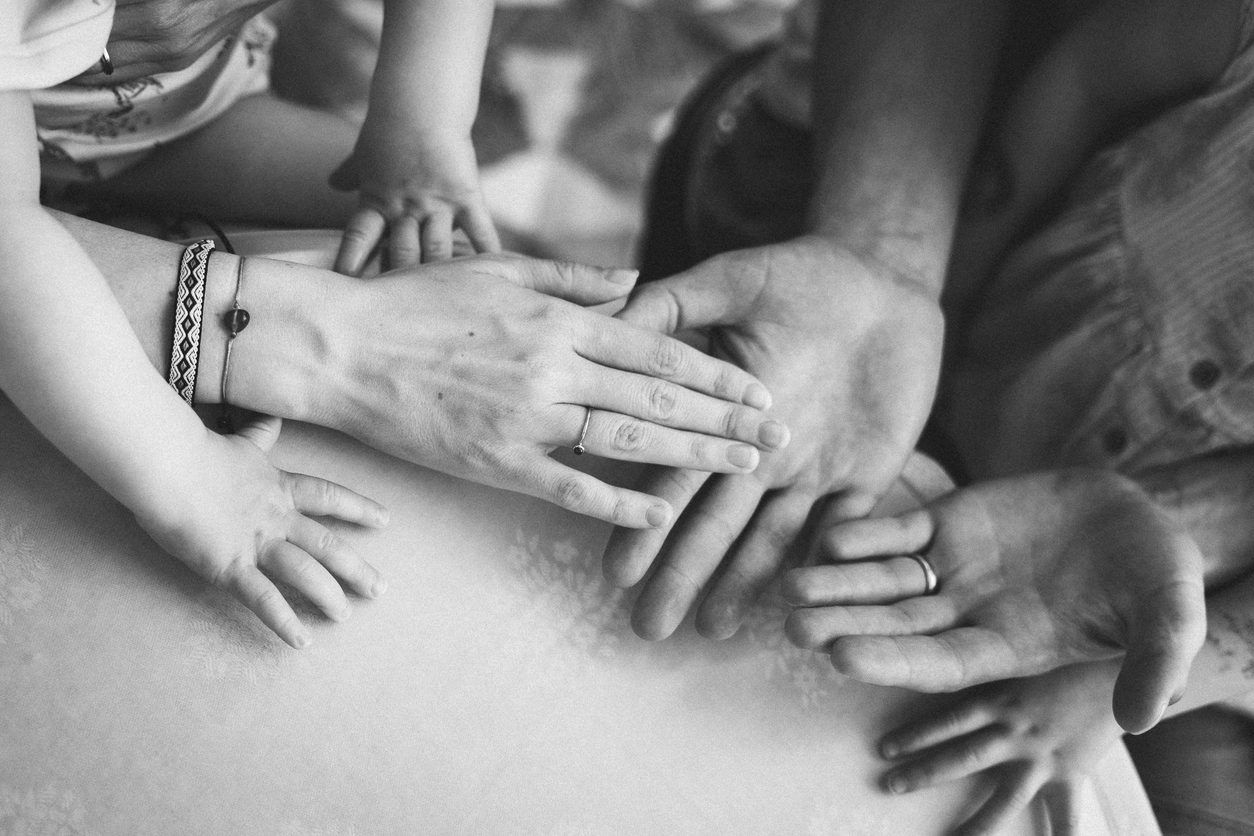Healing from Complex Trauma (C-PTSD)
Complex PTSD (C-PTSD)—Key Takeaways
Complex PTSD develops from repeated or ongoing trauma, often beginning in childhood through neglect, abuse, or attachment injuries. Unlike PTSD, which is linked to single events, C-PTSD affects identity, relationships, trust, and emotional regulation. Symptoms may include dissociation, perfectionism, people-pleasing, hypervigilance, or feelings of deep shame and unworthiness. Healing is possible through trauma-informed therapies such as Internal Family Systems (IFS) therapy, EMDR therapy, and other body-based approaches that gently address trauma without re-traumatization. Dr. Millia Begum, a UK-trained Consultant Psychiatrist and Certified IFS Therapist in Dubai, offers safe, evidence-based care to help survivors of C-PTSD move from survival to resilience.

What is Complex Trauma or C-PTSD?
Complex PTSD is a psychological and relational aftermath from unresolved past emotional wounds, especially those experienced in childhood.
It is a group of symptom patterns originating from childhood trauma and attachment injuries. It can also emerge from repeated exposure to adult relational traumas.
According to the National Child Traumatic Stress Network, complex trauma stems from early-life experiences of abandonment, neglect, emotional abuse, or inconsistent caregiving.
Witnessing parents’ violence and arguments and feeling alone and overwhelmed in all of these creates grounds for developing C-PTSD later in life.

Kinds of Trauma that Result in Complex-PTSD
- Emotional, physical, or sexual abuse in childhood
- Emotional detachment, neglect, and isolation
- Attachment injuries resulting from caregivers
- Emotionally unavailable parenting
- Witnessing parental conflicts or domestic violence
- Experiences of abandonment or inconsistent caregiving
- Repeated exposure to fear, shame, or rejection
- Growing up in foster care or institutional systems
- Living in marginalized or systemically oppressed communities
For many, it is helpful to begin with an understanding of their Adverse Childhood Experiences (ACE) Score.
The ACE Score highlights how emotional and physical health symptoms are often linked to unresolved childhood trauma. However, it is not a replacement for a full mental health evaluation and should be interpreted within the broader context of therapy and support.

Personal trauma
C-PTSD can be a result of an experience or experiences that generate emotional and physical overwhelm one time or repeatedly. These are often carried within us in isolation.

Generational Trauma
Inherited burdens passed on from generations can be unconsciously manifested as repeating the same patterns of living, parenting, showing emotions, expressing oneself, shame, secrecy, violence, or abuse. If we remain bound to the cords of our generations, likely these will be passed on to our future too.

Cultural Trauma
Systemic influences from culture, society, and institutions unknowingly can be absorbed by us and taken as our facts that we require to live by. Inner critics react harshly if we deviate from what has been set as a cultural norm and rules.
Symptoms of Complex Trauma in Adults
Typical PTSD symptoms involve intrusive memories, flashbacks, avoidance of thinking about the trauma, and nightmares.
However, in those with Complex PTSD (C-PTSD), the impact is deeper—affecting a person’s sense of identity, ability to trust themselves and others, capacity to regulate emotions, and interpersonal relationships.
Dissociation, self-harm, and coping with substances or addictions are also common in those living with C-PTSD.
Latest Research Highlights
Research on complex trauma shows that many people develop coping mechanisms such as
- Pleasing and over-apologizing
- Risk-avoiding and hyper-vigilance for danger
- Conflict avoidance and people-pleasing
- Perfectionism and over-performing
- Deep struggles with emotional intimacy
Learn more from the National Child Traumatic Stress Network , which offers extensive research and education on complex trauma in children and adults.
How is Complex PTSD diagnosed? Assessment and who can diagnose it
The diagnosis of Complex PTSD is typically made by a psychiatrist, or by a psychologist. It is informed by clinical history, relational patterns, and trauma exposure.
Common C-PTSD Triggers
When someone lives with Complex PTSD, triggers—both known and unconscious—can provoke intense emotional, psychological, or somatic reactions.
Examples of Common Triggers
- Body language, tone, or expressions perceived as threatening
- Conflict, confrontation, or criticism
- Feeling rejected, abandoned, excluded, or let down
- Relational disappointment or betrayal
- Physical proximity or emotional intimacy that feels unsafe
- Being misunderstood or emotionally overlooked
According to the National Child Traumatic Stress Network , understanding and working with personal triggers is a foundational step in healing Complex PTSD.
Coping Patterns in Complex PTSD
Many coping behaviors in C-PTSD are described as “safety behaviors”—protective in function, but they often prolong distress rather than resolve it.
Examples of Coping Behaviors
- Daydreaming, zoning out, checking out, or switching off
- Using play or imagination in childhood to distract from distress
- Adult forms of distraction (e.g. screen use, work, media)
- Using food, or being preoccupied with weight and appearance
- Turning to substances, alcohol, spending, or social media
- Workaholism, perfectionism, and overachieving to feel worthy
- Avoiding feelings, triggers, people, or situations
- Pre-emptive planning or rehearsing as a defence
- Anxiously preparing for worst-case scenarios
Source: National Center for Biotechnology Information (NCBI)
🌟 Evidence-Based Treatments for C-PTSD: What Helps and Why
Healing from Complex PTSD is not a one-size-fits-all process. It often requires therapies that go beyond traditional talk therapy—approaches that work with the body, nervous system, and the fragmented parts of the self. Below are several evidence-informed methods that support long-term recovery:
- Internal Family Systems (IFS) Therapy—Helps individuals work compassionately with inner parts, unburden past trauma, and restore internal harmony. Especially effective for survivors of childhood and relational trauma.
- Eye Movement Desensitization and Reprocessing (EMDR)—Uses bilateral stimulation to help the brain reprocess traumatic memories. Backed by decades of research and recommended for PTSD by the World Health Organization and APA.
- Somatic Experiencing (SE)—Developed by Dr. Peter Levine, SE works with the body’s stored trauma responses and supports nervous system regulation.
- Trauma-Focused Cognitive Behavioral Therapy (TF-CBT)—A structured approach that helps children, adolescents, and adults process trauma through cognitive restructuring and emotional skill-building.
- Sensorimotor Psychotherapy—Integrates somatic therapy with attachment theory and cognitive approaches to address how trauma lives in the body and interrupts developmental pathways.
About Dr. Millia
Dr. Millia Begum is a trained trauma specialist with over 25 years of clinical experience in psychiatry and therapy. She trained in the UK’s NHS system and served the NHS in various senior roles.
is a trained trauma specialist with over 25 years of clinical experience in psychiatry and therapy. She trained in the UK’s NHS system and served the NHS in various senior roles.
She is a former EMDR Europe Approved Consultant, EMDR researcher, and board member of the EMDR Association UK. She is now a member of the EMDR International Association (EMDRIA).
Dr. Millia is a Certified Internal Family Systems (IFS) Therapist, bringing a compassionate, parts-informed approach to her work with clients in Dubai.
📞 Contact Dr. Millia
If you would like to book a consultation or learn more about services, please get in touch:
- Clinic: First Psychiatry Clinic
- Address: 975 Al Wasl Road, Dubai, UAE
- Phone: +971 55 355 7855
- Email: info@milliabegum.ae
- Website: milliabegum.ae
📍 Location & Opening Hours
Opening hours
- Monday: 09:00 – 18:00
- Tuesday: 09:00–18:00
- Wednesday: 09:00–18:00
- Thursday: 09:00–18:00
- Friday: 09:00–18:00
- Saturday: 09:00–18:00
- Sunday: 09:00–18:00